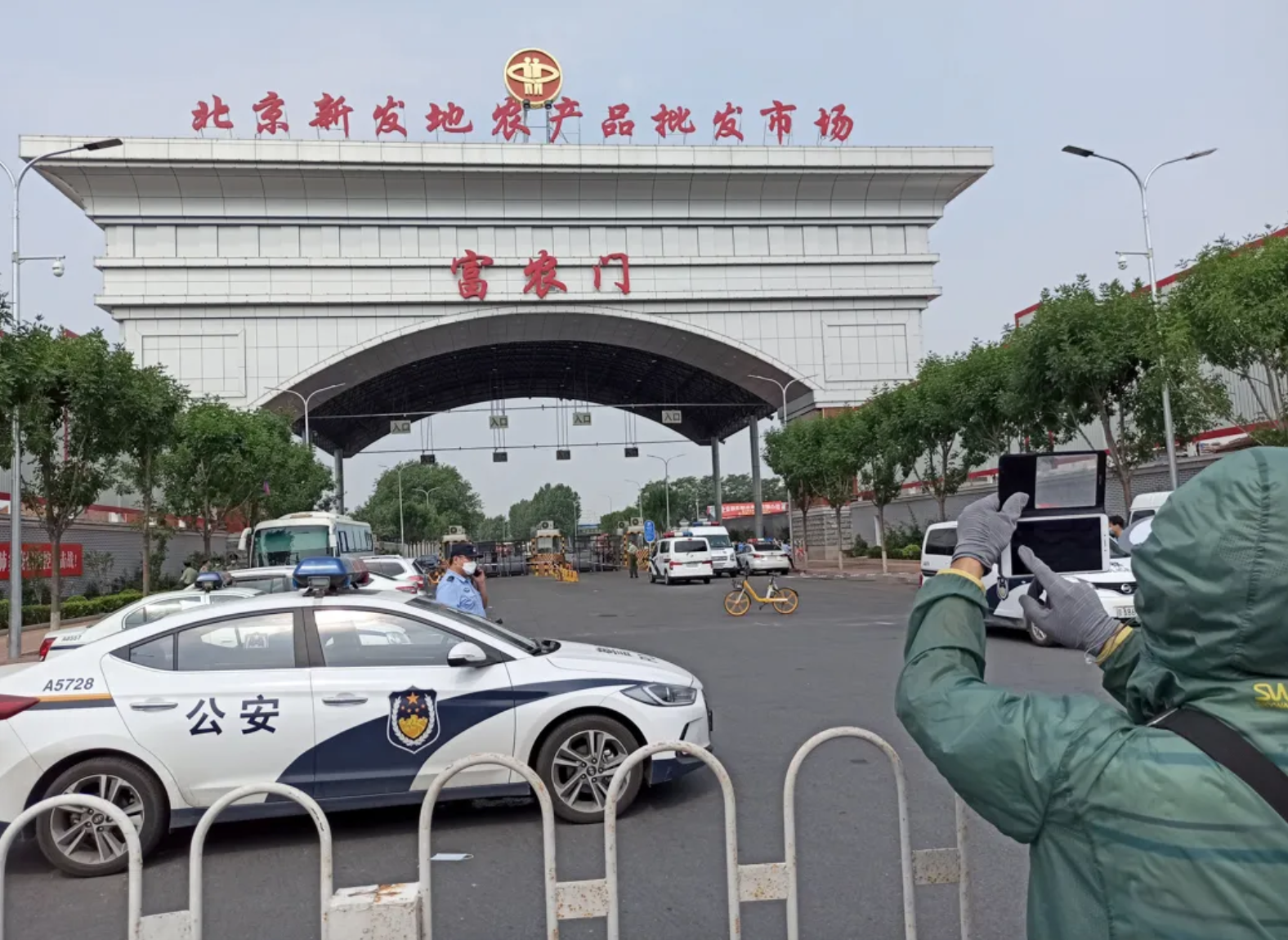Merchants at Beijing’s biggest wholesale market suffer massive losses after abrupt COVID-19 shutdown
The sudden closure of the Xinfadi market, which took place around 3 a.m. on June 13, was widely viewed as a necessary move to curb the spread of the deadly virus. But, it has resulted in massive financial losses for merchants working at the market, and raised fears of a food shortage in the Chinese capital.

Over the weekend, the Xinfadi market in Beijing, the biggest wholesale food market in Asia, was forced to shutter after a handful of new COVID-19 cases were traced to its location. Since then, two local officials and the general manager of the market were removed from their jobs for negligence, while health authorities in the city are racing to track down roughly 200,000 people who have visited the site since May 30.
The sudden closure of the Xinfadi market, which took place around 3 a.m. on June 13, was widely viewed as a necessary move to curb the spread of the deadly virus. But, it has resulted in massive financial losses for merchants working at the market, and raised fears of a food shortage in the Chinese capital.
When speaking (in Chinese) to China Philanthropist, a digital magazine focused on social issues, several vendors from the market said that the unexpected shutdown left them no time to cancel previous orders of crops and transfer food stored on the site. As a result, tons of vegetables and fruits are now at risk of perishing. Financial losses for them will potentially amount to millions of dollars.
“There were no signs of forced closure at all. No one told us in advance that the market would shutter. No one warned us to stop buying large quantities of supplies. It happened in the middle of the night,” said Ms. Mao 毛 máo, a merchant who owned a medium-sized store with about 20 employees in the market. Mao recalled that on the night of the closure, she had more than 10 giant trucks of expensive fruits to unload, but she had no choice but to leave them behind when local police showed up and evicted her from the market.
Mao also noted that before the closure, she was having a hard time keeping her business afloat because of price control measures imposed by the government, which required her to sell groceries below market prices in order to ensure steady food supplies for Beijing. After weeks of struggling, the recent shutdown would likely be a death blow to her business, Mao added.
Another fruit dealer, whose last name is Xu 徐 xú, told the magazine that while he was aware of several new infections linked to the market before the weekend, he thought the fruit and vegetable section would remain unaffected, since the virus was found in the market’s meat and seafood section. Xu said that many merchants he knew, including himself, also believed that an entire closure would be nearly impossible because “the whole city relied on the market for food supplies.” Now, with no access to his storehouse in the market, Xu believes he may face a loss of more than 5 million yuan ($705,517) if he has to dump all of his fruits eventually.
Located in Beijing’s southern Fengtai District, the Xinfadi market makes up about 80% of the capital’s entire farm produce supply and provides more than 90% of fruits and vegetables that the city consumes. According to the market’s website, on any given day, there are about 1,500 tons of seafood, 18,000 tons of vegetables, and 20,000 tons of fruits on sale at the market.
As the largest wholesale food market in Asia, Xinfadi’s closure also triggered worries over a serious shortage of food supplies in Beijing and surrounding areas. As the Southern Weekly reported (in Chinese), on June 13, a few hours after the closure, residents in Beijing started panic-buying vegetables at local food markets amid fears of virus-driven shortages. To maintain the availability of fruits and vegetables, Beijing officials said on Monday that they had connected local grocery stories with suppliers in neighboring regions.






